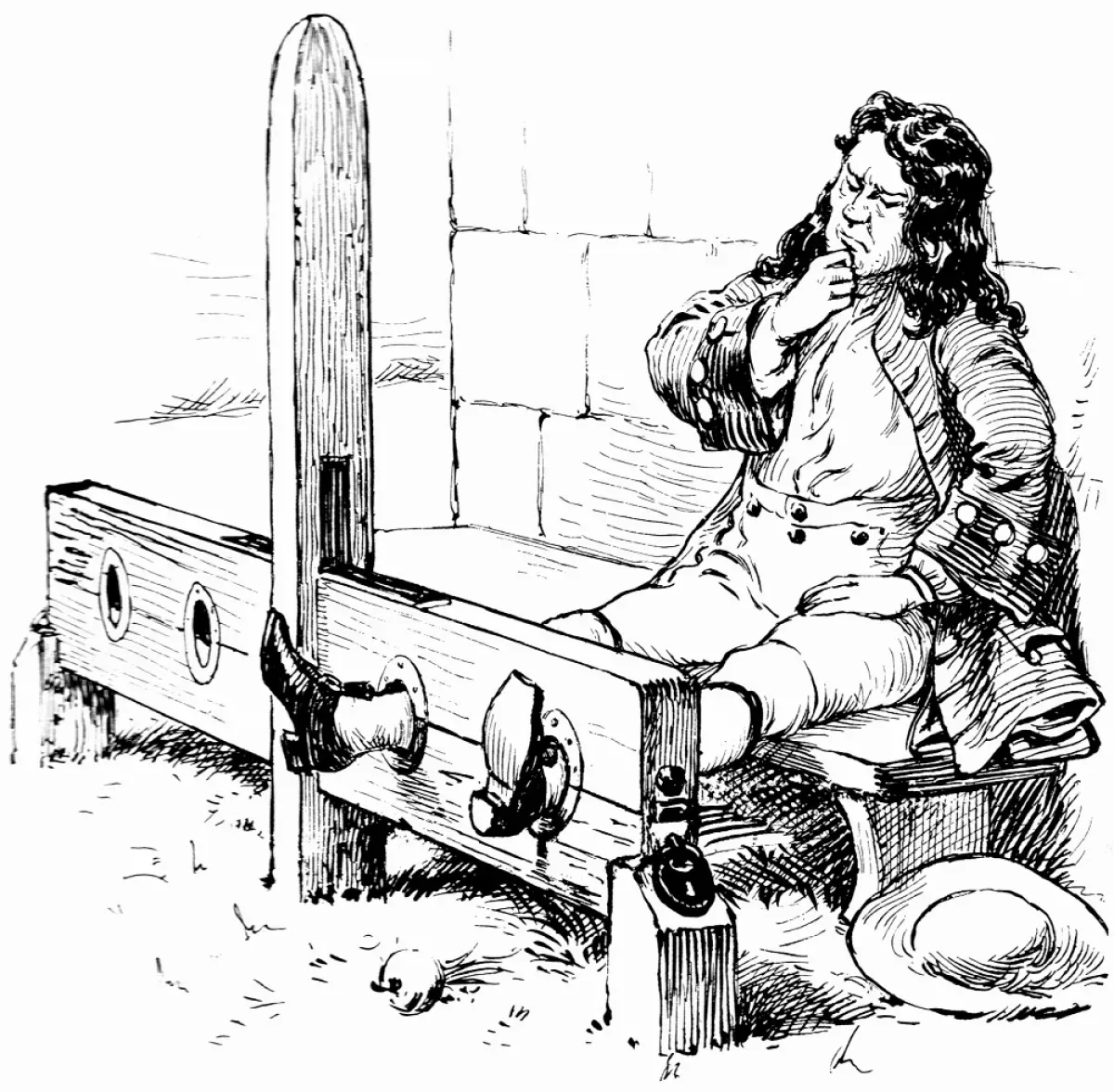Stocks were a type of restraining device historically used as a form of punishment and public shaming. Evidence suggests their use dates back to Ancient Greece, as described in Solon's law code. The stocks involved confining a person's feet, and the duration of confinement could be determined by the court or authority imposing the punishment.
1989: Dermott, Arkansas Passes Curfew Law with Stocks Punishment
In 1989, the town of Dermott, Arkansas, enacted a curfew law that stipulated punishments including jail time for offenders and time in the stocks for the offender's parents. However, the city quickly remitted the punishment due to lacking a set of stocks and allocated funds for their construction.
2012: Adulterers Placed in Stocks by Sampues Tribe in Colombia
In 2012, in Colombia, Alfreda Blanco Basilio and Luis Martinez were placed in stocks by the Sampues tribe because of Basilio's adultery. Basilio spent 72 hours barefoot in the stocks for her offense.
2016: Thame, England Proposal to Build Stocks for Charity
In 2016, the British town of Thame gained international attention with a proposal to construct stocks for hire and charitable events. Councillor David Bretherton suggested using the stocks for fundraising activities, such as having people donate money to tickle the feet of those in the stocks. The stocks were not intended for punishment, but rather for entertainment purposes.
2020: Residents Placed in Stocks for Violating Quarantine in Chinu, Colombia
In 2020, during the COVID-19 pandemic, police in Chinu, Colombia, placed residents who violated quarantine orders in stocks for a few hours as a form of punishment.
Mentioned in this timeline
Colombia officially the Republic of Colombia is a country located...

Quarantine is the restriction of movement for people animals and...

Money serves as a universally accepted medium for exchanging goods...
Trending

59 minutes ago Ashley Padilla shares life lessons learned as Diane Keaton's assistant on SNL.

59 minutes ago Bryce Dallas Howard Celebrates 45th Birthday: A Look at Her Career

59 minutes ago Cameron Brink Reveals Fiancé's Email Introduction and Disappoints Fans with Relationship Status.

59 minutes ago Nate Williams shines in G League, joins Warriors amid blowout loss.

2 hours ago US, Israel launch military operation against Iran, airstrikes kill leader, Gulf earthquake follows.

2 hours ago Kaitlan Collins covers Bill Clinton's Epstein testimony and calls out Trump allies.
Popular

Jesse Jackson is an American civil rights activist politician and...

Hillary Diane Rodham Clinton is a prominent American politician lawyer...

Jim Carrey is a Canadian-American actor and comedian celebrated for...

XXXTentacion born Jahseh Dwayne Ricardo Onfroy was a controversial yet...

Kashyap Pramod Patel is an American lawyer who became the...

Michael Joseph Jackson the King of Pop was a highly...
